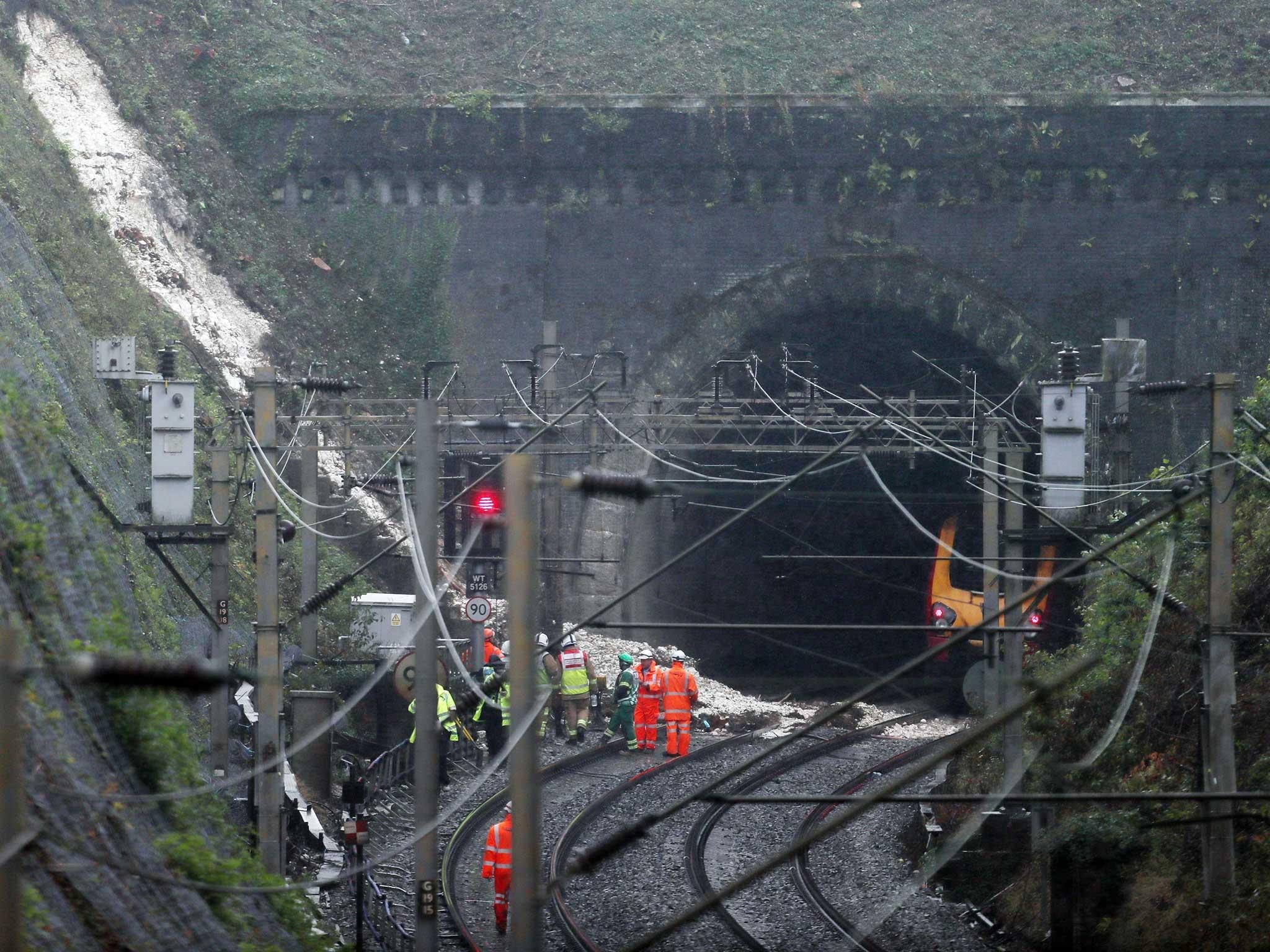Weather chaos across UK exposes an unforgiving and out-of-date railway system
British trains rely on the skeleton of a Victorian network – and signalling that is stuck in the 20th century

Friday morning’s rush hour degenerated into hours of stop-start frustration on the main railways connecting London with the Midlands, North West and the West of England, as well as many commuter lines to and from the capital.
The most serious issue has been the landslide on the tracks at Watford, which disrupted the West Coast main line – the busiest inter-city railway in Europe. Trains that normally run at 125mph as frequently as every three minutes were reduced to a crawl, slotting in with stopping services on the two tracks that remain open.
Passengers were urged to travel on alternative services, putting pressure on Chiltern, East Midlands and Virgin Trains East Coast on the busiest day of the week.
In the absence of HS2, the proposed high-speed link from London to the Midlands and North West, Britain’s railways rely upon the skeleton of a Victorian network – and signalling that is stuck in the 20th century.
Trains between Reading and London were delayed after lightning damaged signalling equipment near Slough. Unlike many European countries, trains in the UK rely upon “lights on sticks”, as the system is disparagingly known. While digital signalling direct to the driver’s cab is widespread in Europe, the only line on which it is used in Britain is HS1, the high-speed railway from London St Pancras to the Channel Tunnel.
A lightning strike on signalling equipment in Hertfordshire shut down the Stansted Express and put paid to thousands of travellers’ plans.
Abellio Greater Anglia, the train operator, advised people not to travel, saying “Your ticket will be valid on this route tomorrow.” Passengers flying from Britain’s fourth-busiest airport will not find their airlines so accommodating.
No transport system can be 100 per cent reliable, but events such as the severe weather in South East England overnight reveal the profound lack of any slack in the system.
Join our commenting forum
Join thought-provoking conversations, follow other Independent readers and see their replies
Comments
Bookmark popover
Removed from bookmarks